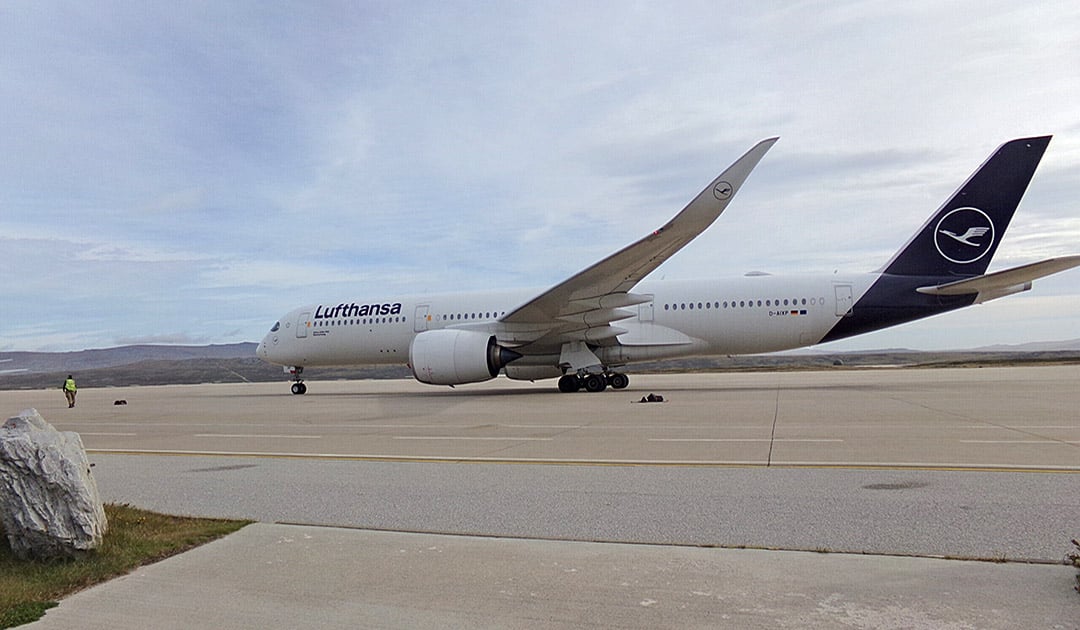
Lufthansa has made history with the landing on February 1, 2021. It was the longest non-stop passenger flight in the company’s history. On board at that time were researchers from the Bremerhaven Alfred Wegener Institute (AWI) for the research station “Neumayer III”, as well as the new crew of the research icebreaker “Polarstern”. With this new special flight, the crew of the “Polarstern” will be replaced and the wintering team will be brought back to the “Neumayer III” station in 2020/21.

The Lufthansa special flight LH2574 will depart again tonight at 21:30 with an Airbus A350-900 from Hamburg Airport. It is then planned to land at Mount Pleasant Airport at 07:55 on Wednesday. The calculated flight time is 15 hours and 25 minutes. By comparison, the last flight took 15 hours and 36 minutes. The plane is scheduled to land again in Munich on April 3. If it would not be possible to land in Mount Pleasant due to climatic conditions, Ushuaia would be again the alternative airport, as it was for the first flight.

The flights were organised by the Alfred Wegener Institute (AWI) to bring a new crew to the research icebreaker “Polarstern”. On the return flight are the researchers and technicians who were dropped off on the first Lufthansa flight two months ago. German scientists will also travel on the flight to take measurements.
In order to avoid COVID-19 being transported to the islands, all persons on board the flight had to be quarantined before departure from Hamburg.
It was also demanded that the waste produced on the flight had to be returned to Germany and that sufficient catering had to be provided for both flights. The aircraft has enough pilots and cabin crew as well as technicians who could solve any maintenance problems that might arise.

Commenting on the flight,Thomas Jahn, Fleet Captain and Falklands Project Manager, said: “With the second flight to the Falkland Islands, we are not only pleased to be able to support AWI’s polar research, but also to make an important contribution to further research into the Earth’s magnetic field. We have already supported climate research projects for more than 25 years.”
This transport is particularly necessary because of the current Corona pandemic. Due to worldwide travel restrictions, the researchers are currently unable to use conventional travel routes to reach Antarctica. Usually the exchange is done via Cape Town, but this is currently not possible due to the Covid-19 protection measures.
Other research stations also have the same problem. For the return flight of the crew of the Norwegian Antarctic station “Troll Research Station”, a Boeing 767-300 of Icelandair was used.
Heiner Kubny, Polarjournal
More on the subject:





